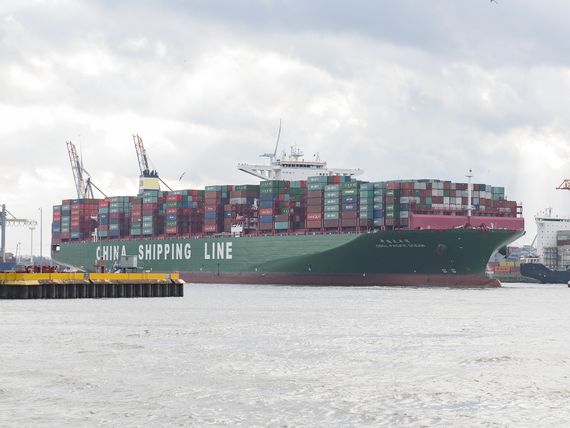What We're Reading: BDP Trendwatch Week 8

Carriers have pulled 1.67m teu of capacity out of China, costing $1.5bn
Ocean carriers have withdrawn more than 1.67m teu of export capacity from China since the lunar new year holiday, according to an Alphaliner survey.
Based on an average freight rate of $1,000 per teu, the cumulative revenue lost to the carriers will have exceeded $1.5bn, putting some of the less-financially secure container lines at risk.
And with a significant link in the supply chain broken, manufacturers worldwide face lengthy shutdowns due to a lack of vital components.
Source: The Loadstar
WTO predicts "weak" merchandise trade growth for early 2020
The World Trade Organization has released its goods trade analysis for December 2019, and the results indicate that "trade volume growth may continue to weaken into early 2020," even without taking the COVID-19 coronavirus epidemic into account.
WTO trade statistics show that the volume of world merchandise trade was down 0.2 percent in the third quarter of 2019 compared to the previous year. The December 2019 "goods trade barometer" index comes in at 95.5 - below the business-as-usual mark of 100 and lower than the level seen the prior month. Readings of 100 indicate growth in line with medium-term trends; readings greater than 100 suggest above-trend growth, while those below 100 indicate below-trend growth.
Source: The Loadstar
Slowing world trade impacts port of Rotterdam volumes
The Port of Rotterdam’s freight throughput remained flat in 2019, as growth in international trade lost momentum.
The port saw a freight throughput of 469.4 million tons in 2019, fractionally higher than 469 million tons in 2018.
As explained, significant underlying shifts were observable between the various commodities. Whereas container, crude oil, LNG and biomass throughputs increased, coal and mineral oil product throughputs decreased.
Source: World Maritime News
U.S. factories in China are open but don’t have enough staff
Most U.S. factories in China’s manufacturing hub around Shanghai will be back at work this week, but the “severe” shortage of workers due to the coronavirus will hit production and global supply chains, according to the American Chamber of Commerce in Shanghai.
While about 90% of the 109 U.S. manufacturers in the Yangtze River delta expect to resume production this week, 78% of them said they don’t have sufficient staff to run at full speed, according to a survey by AmCham. The biggest reasons for that were travel restrictions on their staff returning from holidays and the requirement to quarantine them for two weeks once they do come back.
“Most factories have a severe shortage of workers, even after they are allowed to open,” Chamber President Ker Gibbs said in an email. “This is going to have a severe impact on global supply chains that is only beginning to show up.”
Source: Supply Chain Brain
China's reefer cargo crisis worsens as carriers plan to abandon boxes
Japanese carrier ONE has joined several of its liner peers in imposing a congestion surcharge on reefer containers destined for major Chinese ports.
Moreover, some carriers are preparing to declare force majeure and leave refrigerated containers at alternative ports.
With the coronavirus outbreak showing no signs of abating in China and still severely restricting landside operations at the ports of Shanghai, Ningbo and Xingang, reefer plug-in points are in extremely short supply, obliging carriers to discharge temperature-controlled boxes at other ports.
Source: The Loadstar
Rail services now the smartest way to get product from China to Europe
As China’s factories begin to restart production, albeit slowly, desperate shippers are being urged to consider rail to get their goods out of China.
Airbus, General Motors, Toyota, Volkswagen, Hyundai and others have begun to re-open plants, but with the movement of more than half China’s population restricted, it is unclear how quickly the factories can increase output – and get goods to Europe and the US.
While some shippers are eyeing sea-air options to recover lost time, forwarders are also recommending rail services, many of which, despite some disruption, are continuing to run.
Source: The Loadstar


